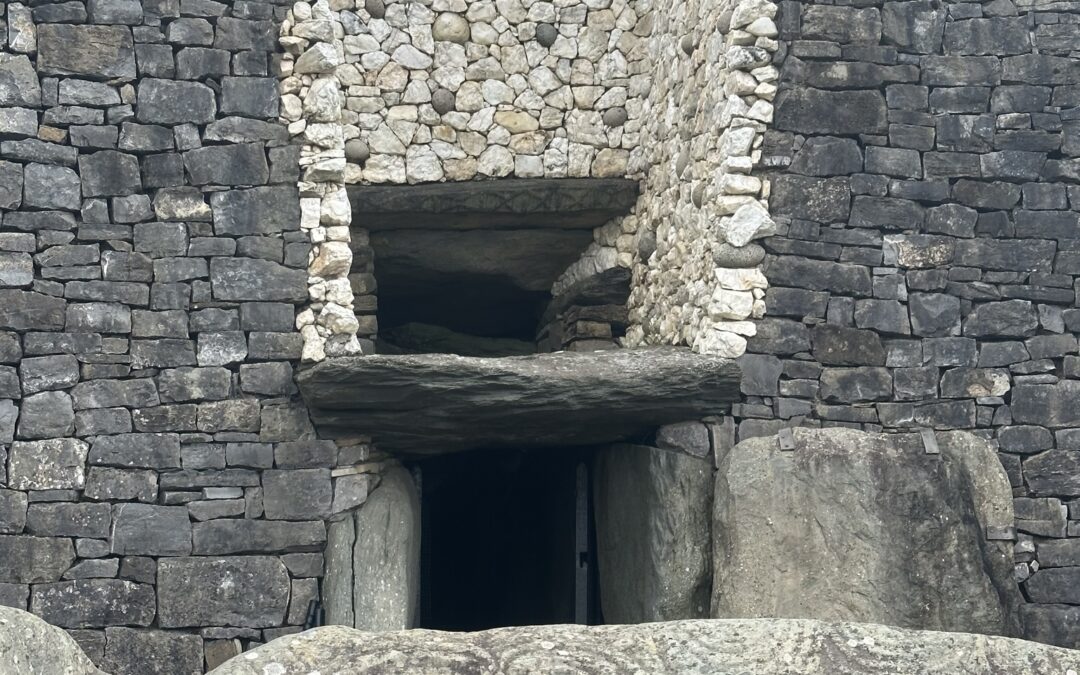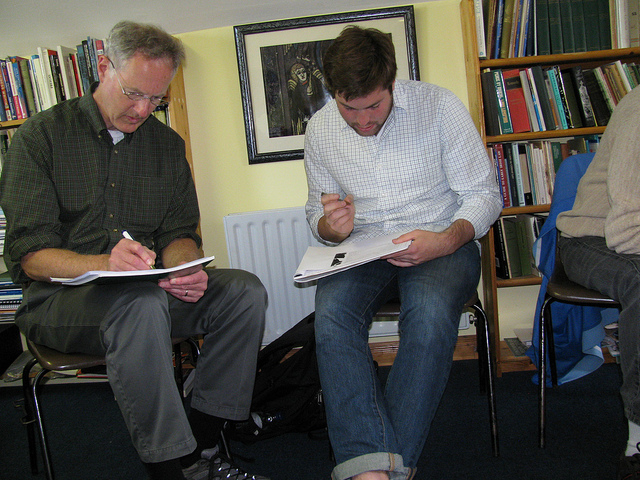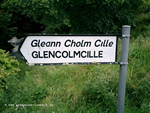
Brú na Bóinne!
Brú na Bóinne!
World Heritage Site
The Brú na Bóinne World Heritage Site is the richest landscape in Ireland from an archaeological point of view.
The last time we visited Brú na Bóinne, I had a lot more hair! It wasn't a World Heritage Site then, either. We promised ourselves for a long time that we would go there again. It's been a while since then, but my wife and I finally visited this wonderful site again.
We were amazed when we entered the Visitor Center, not to mention the archaeological sites! It is a first-class facility, as good as can be found anywhere in the world. The Visitor Center exhibition is a fully interactive visitor experience discussing the culture, landscape and monuments from the Neolithic period at Brú na Bóinne. Unfortunately, we didn't know about the exhibition in advance, and we weren't able to see it all, because we had to get the shuttle bus to the monuments.
Cnóbha
Built around 3,200 BC, the passage tombs at Brú na Bóinne (Knowth, Newgrange and Dowth) are among the most important Neolithic sites in the world, with the largest collection of megalithic art in western Europe. When we got off the bus at Knowth there was a guide waiting for us. We were not allowed to enter the passage, but there was much to see outside. There is a large tomb and eighteen tombs, and their size is amazing. The large tomb is two meters high and 67 meters in diameter, with two tombs inside. There are 127 pillar stones around the tomb and many of them are decorated with megalithic art, and abstract patterns can be seen on them. We have no idea what the Neolithic artists intended with those abstract symbols. It was a very beneficial, very spiritual experience to see them, however. The guide did an excellent job of explaining to us the contextual background regarding the structure and purpose of the tombs at Brú na Bóinne, the stone carving, the people who built the tombs, and the people who were buried there. He shared with us results from DNA research, which changed our understanding of the Neolithic civilization that built those passage tombs. I will come back to the information he shared with us in a moment.
Newgrange
After another trip on the bus, we stopped at Newgrange where another guide was waiting for us. This carn is about 11 meters high and 80 meters in diameter on average. There are 97 curb stones around this tomb and the passage and room are made of 450 other similar stones. Many of them are also decorated with abstract patterns. Inside the room, there is a corbeled vault as a roof, which has kept the room dry for 5,000 years so far!
It is estimated that around 200,000 tons of material were used to build this pile, and white quartz, sandstone and granite stones were collected in some places along the Wicklow mountains. It is thought that those materials were transported by sea rather than by land, but it was a very complex task, no doubt! There were excellent architects and builders working on this project, which took at least thirty years to complete.
We entered the passage which was narrow and low. This passage and the inner room are aligned towards the south-east. There is a small gap above the entrance door (the roof box), which lets the sun in to illuminate the room at the winter solstice. The guide turned off the lights so that it was dark, and then he lit another light and a ray of light came in that lit up the passage and the floor of the room, just as happens with the sun at the solstice. The solstice was undoubtedly very important to the Neolithic people. The passage tombs were multi-functional sites, and it is likely that that society had social events and religious ceremonies in the monuments in Bru na Bóinne.
The bus was waiting for us when we came out of the passage, and we were all quiet in the bus. This trip had an affect on us, I think, and added to our life in a positive, spiritual, even philosophical way!
DNA research
A few things were discovered that were significant and that no one expected. Dr. Lara Cassidy (Department of Genetics at Trinity College) did most of the research and detective work to reveal the facts based on DNA from a man buried in the tomb in Newgrange, confirmed by DNA from other people from other tombs around the country.
Those Neolithic people came to us from the Meath Crescent in the Middle East around 5,000 years before Christ. We don't have much of that DNA in us in Ireland anymore. They were farmers who came over from the Fertile Crescent in the Middle East, and later they went north to Ireland through Europe. What about our own DNA, then? Well, another migration came to Ireland between 3,000 and 2,500 years before Christ, from the Pontic Steppes in eastern Europe, and since then, DNA from those people is seen in us in Ireland.
Dr. Cassidy also discovered a few remarkable things when she did her DNA analysis. Incest was determined, where the parents were close relatives. This only happened when there was a hierarchical society and a kingdom in effect, like the society of ancient Egypt and its pharaohs. It is now considered that such a society existed in Ireland at the time of the construction of the tombs, which was not expected.
Undoubtedly, our archaeological knowledge and understanding is growing and changing all the time, especially with new tools at our disposal, such as DNA analysis. I would highly recommend a visit to Brú na Bóinne, but set aside some time for the exhibition – you will not be disappointed!








